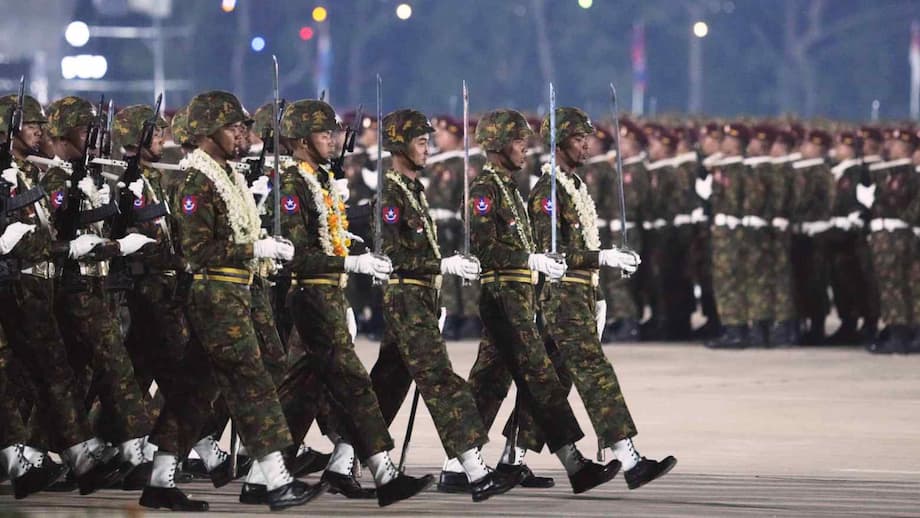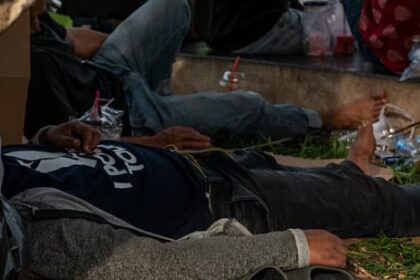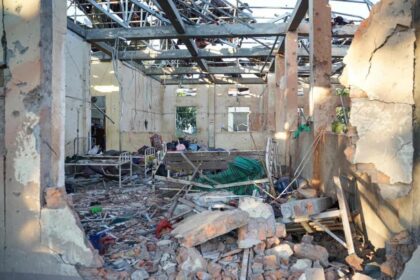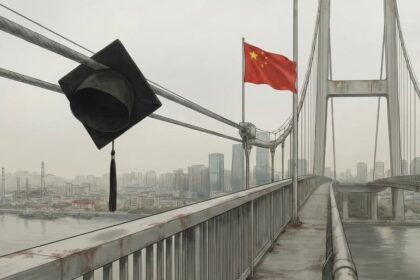Myanmar’s Pre-Election Crackdown: New Laws, Old Tactics
As Myanmar’s military regime prepares for elections slated for late 2025, it has unleashed a wave of new laws and security measures aimed squarely at consolidating its power and suppressing resistance. These legal maneuvers, coupled with intensified repression and martial law in opposition strongholds, have drawn widespread condemnation from pro-democracy groups, international observers, and human rights organizations. The junta’s actions raise critical questions about the legitimacy of the upcoming polls and the future of democracy in Myanmar.
- Myanmar’s Pre-Election Crackdown: New Laws, Old Tactics
- Background: From Coup to Civil War
- Legal Changes: New Laws to Quash Dissent
- Election Preparations: Census, Voter Lists, and Control
- Martial Law and Security Crackdown in Resistance Areas
- Political Parties: Registration Laws and the Shrinking Space for Opposition
- International Response: Legitimacy in Question
- Resistance and the Prospects for the Election
- Broader Implications: Democracy, Human Rights, and the Future
- In Summary
Background: From Coup to Civil War
Myanmar’s current crisis began on February 1, 2021, when the military, led by Senior General Min Aung Hlaing, seized power from the democratically elected government of Aung San Suu Kyi’s National League for Democracy (NLD). The military justified the coup by alleging widespread fraud in the 2020 elections—claims dismissed by both domestic and international observers. The coup triggered mass protests, a civil disobedience movement, and eventually a nationwide armed resistance, plunging the country into a protracted civil war.
Since then, the military regime has struggled to assert control over large swathes of the country. Ethnic armed organizations and newly formed resistance groups have taken control of significant territory, especially in rural and border areas. The shadow National Unity Government (NUG), formed by ousted lawmakers and activists, has become the political face of the resistance, while millions of civilians have been displaced by the ongoing conflict.
Legal Changes: New Laws to Quash Dissent
In the lead-up to the planned elections, the junta has enacted a series of sweeping legal changes designed to stifle opposition and ensure its dominance:
- Harsh Penalties for Election Obstruction: A new electoral law passed in July 2025 imposes severe punishments—including the death penalty—for anyone found guilty of obstructing or disrupting the election process. The law’s broad definitions mean that organizing protests, distributing leaflets, or even speaking out against the election can result in prison sentences ranging from three years to life, or even execution if actions result in death.
- Suspension of Privacy Protections: The regime has reinstated the suspension of key provisions in the Law Protecting the Privacy and Security of Citizens, allowing authorities to conduct warrantless arrests, home raids, and surveillance. This move, widely seen as an attempt to quash dissent, effectively removes legal protections for citizens across the country.
- Martial Law in Resistance Areas: Martial law has been imposed in 63 of Myanmar’s 330 townships, primarily in regions controlled by resistance forces. This grants the military sweeping powers to arrest, detain, and try civilians in military courts, bypassing civilian judicial oversight.
- Amendments to Election Laws: The junta has changed the Union Election Commission Law, allowing government staff—many of whom are ex-military officers—to chair election bodies at all levels. This centralizes control over the electoral process in the hands of regime loyalists.
- Restrictive Political Party Laws: New party registration requirements demand large membership numbers and significant financial resources, effectively sidelining most opposition parties. The NLD and dozens of other parties have been dissolved for refusing to register under these rules.
Expert and Opposition Reactions
Legal experts and opposition figures have condemned these measures as blatant assaults on basic rights. A judge who joined the Civil Disobedience Movement after the coup told The Irrawaddy:
The regime has already violated human and citizenship rights as it pleases and has now officially suspended those three provisions to lend fake legitimacy to its rights violations.
The parallel National Unity Government (NUG) has urged citizens to resist cooperation with the regime’s initiatives, warning that those who assist the military could face punishment from resistance forces.
Election Preparations: Census, Voter Lists, and Control
Despite ongoing conflict, the military is pressing ahead with preparations for the elections. A nationwide census, conducted under armed guard, is being used to compile voter lists. Enumerators—often schoolteachers and local administrators—are accompanied by soldiers and police as they go door-to-door, raising fears among citizens that the data could be used for surveillance, conscription, or reprisals against those involved in resistance activities.
Critics argue that participation in the census is often coerced, and that the resulting data is unreliable. The United Nations Population Fund, which supported Myanmar’s last census in 2014, has withdrawn its support for the 2024 effort, citing political strife. China, however, has pledged technical assistance, reflecting the regime’s ongoing diplomatic engagement with some regional powers.
The regime claims the census is crucial for ensuring free and fair elections, but opposition groups and many ordinary citizens see it as another tool for consolidating military control. According to AP News, some citizens are actively avoiding the survey, fearing that information could be used for forced recruitment or targeted repression.
Martial Law and Security Crackdown in Resistance Areas
Martial law has been imposed in dozens of townships, particularly in regions where the military’s control is weakest. In these areas, the regime has sweeping powers to arrest, detain, and try civilians in military courts. According to The Irrawaddy, of the 63 townships under martial law, 46 are under complete anti-regime control, and the junta controls only the towns in another 16. Ongoing clashes make it unlikely that elections can be held in these areas unless the military regains control.
Resistance groups have vowed to disrupt the polls, and some have already attacked officials involved in the census and voter list preparations. The regime’s response has been to escalate repression, including warrantless arrests, home raids, and blanket surveillance. The Assistance Association for Political Prisoners estimates that around 30,000 opponents have been imprisoned and more than 7,000 civilians killed by the regime since the coup.
Political Parties: Registration Laws and the Shrinking Space for Opposition
The new political party registration law, enacted in January 2024, imposes strict requirements that most opposition parties cannot meet. Of 50 parties that applied, 47 were registered—mostly small or weak parties with little electoral success. The NLD and 40 other parties, many with strong public support, refused to register and were dissolved. Registered parties are often seen as pro-military or motivated by fear of reprisals.
Party leaders and analysts agree that the new laws are designed to favor the military’s proxy, the Union Solidarity and Development Party (USDP), and to marginalize genuine opposition. The shift from a First-Past-The-Post to a Proportional Representation system is also seen as a move to dilute opposition influence and entrench military dominance.
According to a Stimson Center report, most political parties do not believe the military will allow genuine democracy or a peaceful resolution to the conflict. Many see armed resistance as the only way to pressure the regime, and the political space for opposition has shrunk dramatically, with parties shifting focus to humanitarian aid instead of electoral politics.
International Response: Legitimacy in Question
Western governments, including the United States, have dismissed the junta-organized elections as illegitimate and have called for pressure on the regime to halt its repressive tactics. The Association of Southeast Asian Nations (ASEAN) has advised that peace should be prioritized over elections, but some regional actors, including China, Thailand, Cambodia, and India, have engaged diplomatically with the junta’s election body, potentially lending credibility to the process.
Election experts and human rights organizations argue that the planned elections are a façade designed to legitimize military rule rather than restore democracy. The Asian Network for Free Elections notes that Myanmar’s democratic performance has plummeted since the 2021 coup, with scores dropping to zero in most measures of representation. The United Nations Human Rights Council reports that violence has escalated, with over 2,400 civilian deaths between April 2023 and June 2024, and more than three million people displaced.
Resistance and the Prospects for the Election
Despite the regime’s efforts, resistance remains strong. Armed groups and the NUG have vowed to disrupt the polls, and many citizens view the planned elections as illegitimate. The military’s control is limited to less than half the country, and its ability to organize credible elections is in serious doubt. The recent lifting of the state of emergency—a constitutional requirement for holding elections—was quickly followed by the reinstatement of repressive laws, underscoring the regime’s determination to maintain its grip on power at all costs.
Opposition groups have stated that while attacks on military targets will continue, civilians participating in the election will not be targeted, though collaborators may face punishment. The NUG and other resistance leaders have called for international support and for the global community to reject the junta’s election as a sham.
Broader Implications: Democracy, Human Rights, and the Future
The regime’s legal crackdown and election preparations are unfolding against a backdrop of deepening humanitarian crisis. Civil liberties are severely restricted, with media censorship, mass arrests, and widespread violence against civilians. Ethnic and religious minorities, especially the Rohingya, face systemic discrimination and disenfranchisement. Economic decline, forced labor, and human trafficking are rampant, pushing half the population below the poverty line and leaving more than 18 million in need of humanitarian aid.
For many in Myanmar, the hope for democracy now rests on ending military rule and establishing a federal democratic union without military involvement. As one political observer put it:
The junta’s actions have failed to create conditions for free and fair elections, pushing Myanmar closer to a failed state.
With the military determined to press ahead with its election plans, the coming months are likely to see continued violence, repression, and instability. The outcome of the polls—if they are held at all—will do little to resolve Myanmar’s deepening crisis.
In Summary
- Myanmar’s military regime has enacted harsh new laws targeting resistance and consolidating control ahead of elections planned for late 2025.
- Legal changes include severe penalties for election obstruction, suspension of privacy protections, martial law in opposition areas, and amendments to election laws favoring regime loyalists.
- The political party registration process has sidelined most opposition parties, including the NLD, shrinking the space for genuine political competition.
- Martial law and warrantless arrests have intensified repression, especially in regions controlled by resistance forces.
- International observers and pro-democracy groups widely view the planned elections as illegitimate and designed to entrench military rule.
- Ongoing conflict, humanitarian crisis, and widespread resistance make free and fair elections impossible under current conditions.
- The future of democracy in Myanmar remains uncertain, with hopes resting on ending military rule and establishing a truly representative government.












